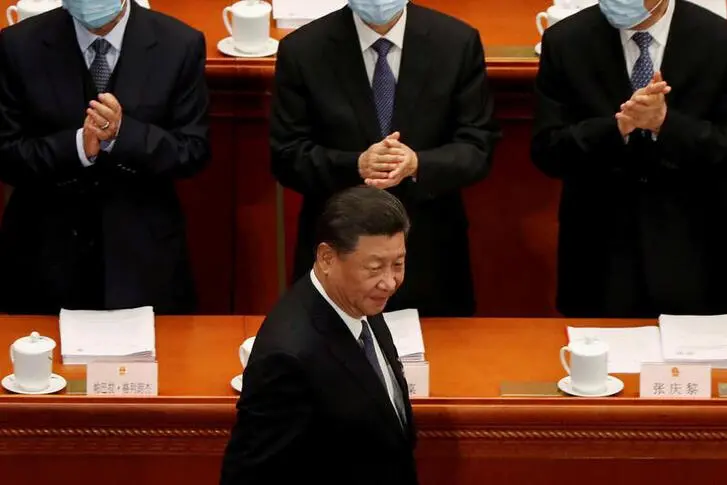PHOTO
(The author is a Reuters Breakingviews columnist. The opinions expressed are his own.)
HONG KONG - Beijing may overtake the White House in the race to annoy the most trading partners at once. China has added fresh spats with India and Japan to its lengthening list of bilateral brawls. The People’s Republic may believe opponents remain too divided to push back. It’s a dangerous assumption.
China has set new milestones in unfriendliness in 2020 as President Xi Jinping has rallied support from nationalists. During the pandemic the military consolidated positions on disputed territory in the South China Sea, and let its soldiers get into a deadly brawl with Indian troops in June. State media has gleefully rubbed in salt.
Relationships with Washington, Ottawa, and Canberra are in shambles. African governments are cranky about bigoted treatment of their citizens in China. European leaders are playing hardball in talks for an investment treaty. As for Japan, relations are headed back into the refrigerator after a brief warm spell.
Economically speaking, Beijing has been big on stick and thin on carrot: Chinese consumption has yet to help trade partners much. Imports, which have been falling since December, tanked 17% in May, which helped widen its monthly surplus with the United States to $28 billion.
China’s most powerful opponents do remain divided: for all the chatter about a unified front between Washington and Brussels against Beijing, the United States and Germany can’t agree on how to handle China - or Russia for that matter.
Yet bilateral measures are adding up. U.S. sanctions targeting Beijing’s crackdown in Hong Kong have real teeth. So do the intermediate-range missiles making their way to Pacific allies. New Delhi is curbing Chinese investment. Japan is paying some of its firms to reshore. Trade pacts China wants to join, like the Regional Comprehensive Economic Partnership, could be slowed by all the squabbling.
Some of China’s overseas bluster will be designed to placate at home. The danger is that external fights might be supplemented with bigger than expected internal economic challenges, especially if there is a serious second wave of Covid-19. A quarrelling China may soon find itself spread too thin.
CONTEXT NEWS
- China has deployed large numbers of troops and weapons along a disputed Himalayan border in violation of bilateral agreements, India's foreign ministry said on June 25, accusing Beijing of escalating tensions and triggering a deadly clash earlier this month.
- On June 15, Indian and Chinese troops brawled for several hours in the Galwan Valley, killing 20 Indian soldiers and injuring at least 76 more, Reuters reported.
(The author is a Reuters Breakingviews columnist. The opinions expressed are his own.)
(Editing by Una Galani and Sharon Lam) ((pete.sweeney@thomsonreuters.com; Reuters Messaging: pete.sweeney.thomsonreuters.com@reuters.net))





















